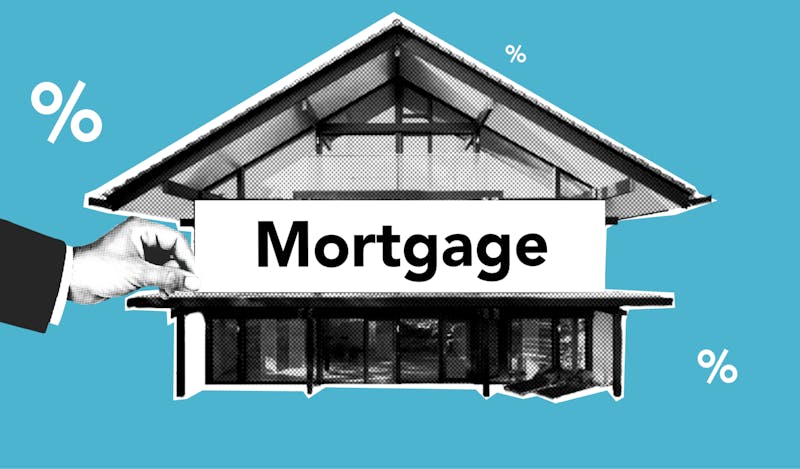Welcome to our comprehensive mortgage guide on options and financial freedom. In this detailed article, we will delve into the world of mortgages, exploring various types of mortgages, the mortgage process, how to compare mortgages, the reasons people need mortgages, and how to secure a mortgage that suits your needs and preferences.
Whether you are a first-time homebuyer or looking to refinance, understanding mortgages is crucial for making informed decisions and achieving your financial goals. Let’s check this mortgage guide for Canadians.
Mortgage Basics
At its core, a mortgage is a powerful financial tool that enables individuals in Canada to purchase or refinance real estate by leveraging the property as collateral. By entering into a mortgage agreement with a lender, known as the mortgagee, Canadian borrowers, also known as mortgagors, gain access to funds upfront, allowing them to make their homeownership dreams a reality. In return, borrowers commit to repaying the loan over time through regular installments, which consist of both principal and interest payments.
Types of Mortgages
Now, let’s explore the types of most common mortgages in Canada:
-
Residential Mortgages
Residential mortgages are the bedrock of the Canadian housing market, enabling countless individuals to purchase their dream homes. These mortgages often come with lower interest rates and longer terms, making them more affordable for Canadian borrowers. To secure the best possible terms, it’s essential to assess your financial situation and creditworthiness before selecting a residential mortgage in Canada.
-
Private Mortgages
Private mortgages present an alternative option for Canadian individuals who may not qualify for traditional bank loans due to credit issues or non-traditional income sources. These mortgages are funded by private lenders within the Canadian context, and while they may come with higher interest rates, they can be a viable solution for certain situations. Before opting for a private mortgage in Canada, conduct careful consideration and thorough research.
-
Reverse Mortgages
Reverse mortgages cater to seniors aged 55 and older in Canada, offering them the opportunity to convert a portion of their home equity into cash. The unique aspect of reverse mortgages is that they do not require monthly repayments. Instead, the outstanding balance becomes due when the homeowner sells the property, moves out, or passes away. Seniors in Canada can enjoy financial flexibility with a reverse mortgage, but it’s crucial to approach this option with caution, considering potential implications.
-
Construction Mortgages
Construction mortgages cater to those building new homes or undertaking substantial renovations within Canada. These loans are typically released in stages as the construction progresses, ensuring that funds are available when needed. When considering a construction mortgage in Canada, it’s essential to understand the intricacies of the building process, timelines, and budgeting.
-
Vacation and Second Home Mortgages
For those dreaming of a vacation retreat or a second home in Canada, vacation and second home mortgages can turn those dreams into reality. These mortgages have distinct approval processes and may require a higher down payment, but they open up exciting opportunities for property ownership beyond one’s primary residence.
-
Home Equity Line of Credit (HELOC)
A home equity line of credit (HELOC) is a revolving line of credit based on the Canadian homeowner’s equity. Borrowers can withdraw funds as needed, making it an excellent option for ongoing expenses or sudden financial needs within Canada. Using a HELOC wisely can be a valuable financial strategy to address various financial requirements.
-
Interim Financing
Interim financing, also known as bridge loans, bridges the gap between the purchase of a new property and the sale of an existing one within Canada. This short-term financing option allows homeowners to secure their new home without rushing the sale of their current one. However, as with any financial product, careful planning and consideration are essential to ensure a seamless transition within the Canadian real estate market.
-
Renovations and Home Improvement Mortgages
Renovations and home improvement mortgages offer financing for home improvement projects within Canada. Homeowners can borrow against their home’s equity or refinance their existing mortgage to fund these improvements, which can enhance the property’s value and comfort.
-
Debt Consolidation and Bridge Financing
Debt consolidation and bridge financing are invaluable tools to manage debt and streamline finances in Canada. Debt consolidation combines multiple debts into a single loan, simplifying repayments and potentially lowering the overall interest rate. Bridge financing, as mentioned earlier, provides temporary funds until more permanent financing is secured within the Canadian context.
Factors Affecting Mortgage Rates
Understanding the factors that influence mortgage rates can empower you to secure the best possible deal. Some essential elements that lenders consider include:
1. Credit Score
Your credit score plays a significant role in determining the interest rate you qualify for. A higher credit score signals to lenders that you are a reliable borrower, potentially leading to more favourable rates. Conversely, a lower credit score may result in higher interest rates or even difficulties in obtaining a mortgage.
2. Down Payment
The size of your down payment can impact the mortgage rate. A larger down payment typically indicates a lower risk for the lender, potentially resulting in a reduced interest rate.
3. The Interplay of Economic Factors: Bank of Canada Rate and Bond Yields
Mortgage rates are influenced by broader economic factors such as inflation, unemployment rates, and overall economic stability. In times of economic growth, interest rates may rise, while they tend to lower during economic downturns. However, it’s important to highlight the role of the Bank of Canada rate and bond yields in this dance since they play crucial roles in determining mortgage rates.
Let’s delve into their significance and how they respond to the ebb and flow of the economy:
- Bank of Canada Rate: The Bank of Canada sets the benchmark interest rate for the country. When this rate goes up, commercial banks often raise their prime lending rates. As a result, borrowers might see higher interest rates on variable-rate mortgages and lines of credit.
- Bond Yields: Government bonds are a crucial part of the financial landscape. When investors are uncertain about economic conditions, they often turn to safer investments like government bonds. The demand for bonds increases, which in turn pushes bond prices up and yields down. Mortgage rates, particularly for fixed-rate mortgages, correlate with these bond yields. When bond yields rise, fixed mortgage rates tend to follow suit.
Economic Conditions
Both the Bank of Canada rate and bond yields are strongly linked to the overall economic climate. In times of economic growth, the Bank of Canada might raise rates to prevent excessive inflation. Similarly, investors might demand higher bond yields in uncertain economic times to compensate for perceived risks.
4. Loan Term
The length of your mortgage term can affect the interest rate. Shorter terms often come with lower rates but higher monthly payments, while longer terms may have slightly higher rates but offer more manageable monthly payments.
Choosing the Right Mortgage
Selecting the right mortgage involves careful consideration of your financial situation, risk tolerance, and future plans. Here are some valuable tips to guide you in making an informed decision:
1. Assess Your Financial Health
Before diving into the home-buying process, conduct a thorough assessment of your financial health. Evaluate your credit score, outstanding debts, and current income to determine how much loan amount you can afford.
2. Compare Lenders and Offers: Seek Professional Advice and Compare Your Options
Comparing mortgages in Canada can be overwhelming, but it’s crucial to find the best fit for your financial situation and aspirations. Here are some key factors to consider when comparing mortgages:
- Interest Rates: Understanding mortgage rates and terms is crucial for making informed decisions when obtaining a mortgage. Compare interest rates from different lenders in Canada, including those catering specifically to the Canadian market.
- Loan Terms: Assess the length of the loan term within the Canadian context. Shorter terms often have higher monthly payments but lower total interest costs over time.
- Fees and Closing Costs: Factor in any fees and closing costs associated with the mortgage in Canada. These can vary among lenders and impact the overall cost of borrowing.
- Down Payment Requirements: Different mortgages in Canada have varying down payment requirements. A larger down payment may lead to lower monthly payments and better terms.
- Customer Service and Reputation: Research the lender’s customer service reputation within the Canadian market and read reviews from other Canadian borrowers to ensure a smooth borrowing experience.
At Enrich we do all of these for the clients, saving them headaches and giving them professional advice.
3. GET Pre-Approved
Obtaining a pre-approval letter from a lender can give you a competitive edge in the housing market. It demonstrates to sellers that you are a credible and serious buyer and increases your chances of closing the deal.
4. Seek Professional Advice
Navigating the world of mortgages can be complex, and seeking guidance from a qualified mortgage advisor or financial expert can prove invaluable. They can help you make sense of the various options and find a mortgage that best suits your unique needs.
Achieving Financial Freedom Through Smart Mortgage Management
A mortgage is more than just a loan, it’s a tool that, when used wisely, can pave the way to financial freedom. Here are some strategies to manage your mortgage responsibly:
1. Make Timely Payments
Punctual mortgage payments not only strengthen your credit history but also save you from costly late fees and penalties. Set up automatic payments or reminders to ensure you never miss a due date.
2. Consider Extra Payments
If your financial situation allows, consider making extra payments toward your principal. This can help you pay off your mortgage faster and save on interest over the long term.
3. Refinance Wisely
When interest rates drop, refinancing your mortgage can be a smart move. However, carefully evaluate the costs and benefits before proceeding. Ensure that the new terms align with your financial goals.
4. Avoid Taking on Excessive Debt
While owning a home is a significant achievement, it’s essential to avoid accumulating excessive debt elsewhere. High credit card balances or personal loans can strain your finances and affect your ability to manage your mortgage effectively.
Owning a home and achieving financial freedom are attainable goals with the right approach to mortgages. By understanding the different types of mortgages, the factors influencing interest rates, and making informed decisions, you can set yourself on a path toward a secure and prosperous future. Remember, the journey to homeownership is not just about finding the perfect house, it’s also about finding a mortgage that fits your needs and aligns with your long-term financial objectives. With diligence, research, and careful planning, you can confidently embark on this exciting journey and leave other websites behind with the power of knowledge at your fingertips.



